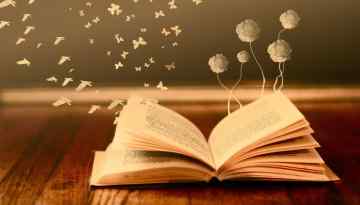
Human beings are different from other animals in their unique characteristic of talking. Thanks to this talk we can share our stories, stories that happened to others or even ones that hasn’t happened at all, and make them with a sense everyone could understand. Thus, we have gone from the ‘speak’, to the ‘tell’, and since then, human beings have specialized in the art of storytelling.
There are many ways to tell a story though. Images in movement give us a close and more immersive experience of what is being told; painting allow us to navigate and get ourselves lost into the world of the strokes, mysterious and meaningful; the power of the voice takes us towards the deepest feelings whilst it seduces us with its variety of tones and means. But nothing like the power of the written word.
Writing let us time enough to think about what we want to say, the chosen words and their reference meanings. It is barely misunderstood and has a surgeon-like accuracy. Words have exact significations and for any possible one, there is a word that references it, describes it. Therefore, written stories are more likely to be exactly decrypted by the public than any other possible storytelling way.
These words reach us through its closer ally, the books. These knowledge recipients have become a symbol of our triumph against the unknown. Books challenge us and drive us to yet unknown worlds, where everything is possible. From the ancient Greeks and his fantastic tales to the infamous cruelty of the wars, books has taken us even further the limits of the reality throughout the history of humanity.
Here is a list of the 10 books that everyone should read, according to importance, social awareness created and storytelling skills:
- The Lords of the Rings saga by J.R.R Tolkien (1954)
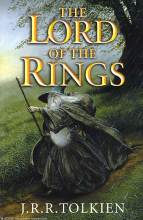 There just a few books since the Ancient World that explains how another mystical world might be, and for them, The Lord of the Rings is their reference. Everything written in this book take us to the Middle Earth. The poetry and background stories, the invented languages, the marvellous described places, the social interactions between its inhabitants… Yet it has a special relevance in the time it was written and the lecture in it: the good west vs the bad east, the human corruption, the overcoming racism, the friendship, etc.
There just a few books since the Ancient World that explains how another mystical world might be, and for them, The Lord of the Rings is their reference. Everything written in this book take us to the Middle Earth. The poetry and background stories, the invented languages, the marvellous described places, the social interactions between its inhabitants… Yet it has a special relevance in the time it was written and the lecture in it: the good west vs the bad east, the human corruption, the overcoming racism, the friendship, etc.
- The Kindly Ones (aka Les Bienveillantes) by Jonathan Littell (2006)
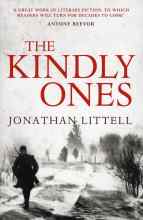
There are many books about the worst episode of our history, the holocaust, but nothing like Les Bienveillantes. The book is narrated by its fictional protagonist Maximilien Aue, a former SS officer of French and German ancestry who helped to carry out the Holocaust and was present during several major events of World War II. The art of storytelling take us here to a new step as the author tries to explain (and even make us be empathic with him) how a men can be so wrong to commit these horrible murders. The scenes are ravages and the personal thoughts of the general, completely breathtaking.
- Hamlet by William Shakespeare (17th century)
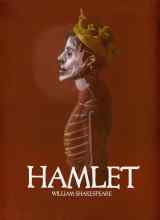
Set in Denmark, the play dramatises the revenge Prince Hamlet is called to wreak upon his uncle, Claudius, by the ghost of Hamlet’s father, King Hamlet. Claudius had murdered his own brother and seized the throne, also marrying his deceased brother’s widow. England’s Golden Century gave us Shakespeare as one of the best storytellers in history. With an extraordinary domain of twists and romance, he started a model of tell stories that has been repeated (and it will be) along the Literature.
- Don Quixote by Miguel de Cervantes (1605)
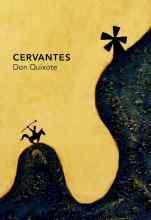
Spanish literature is well represented in the old and mad knight of Don Quixote. The humor, the criticism to other similar trending stories at that time and the high-developed language used is still a reference in modern literature. It has even said that Cervantes, the author, was one of the first hipster of history.
The story follows the adventures of a hidalgo named Mr. Alonso Quixano who reads so many chivalric romances that he loses his sanity and decides to set out to revivechivalry, undo wrongs, and bring justice to the world, under the name Don Quixote de la Mancha.
- Pride and Prejudice by Jane Austin (1813)
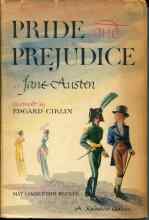
The story charts the emotional development of the protagonist, Elizabeth Bennet, who learns the error of making hasty judgements and comes to appreciate the difference between the superficial and the essential. The comedy of the writing lies in the depiction of manners, education, marriage and money in the British Regency. In a world dominated by men, Jane Austin stood forward to tell Elizabeth’s story through her eyes and break down walls on the way.
- The Catcher in the Rye by J. D. Salinger (1951)
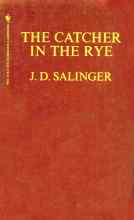 Sometimes, the simplest stories have the most powerful meanings. That is the case of The Catcher in the Rye which follows Holden Caulfield, a teenager from New York City, in a series of daily adventures in the city. The book became an icon for teenage rebellion. The novel also deals with complex issues of innocence, identity, belonging, loss, and connection in its just 200 pages. It is said that John Lennon’s killer was influenced by this book.
Sometimes, the simplest stories have the most powerful meanings. That is the case of The Catcher in the Rye which follows Holden Caulfield, a teenager from New York City, in a series of daily adventures in the city. The book became an icon for teenage rebellion. The novel also deals with complex issues of innocence, identity, belonging, loss, and connection in its just 200 pages. It is said that John Lennon’s killer was influenced by this book.
- The Little Prince by Antoine de Saint-Exupéry (1943)
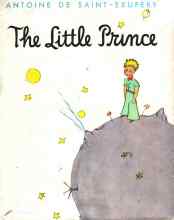
The Little Prince is a poetic tale, with watercolour illustrations by the author, in which a pilot stranded in the desert meets a young prince fallen to Earth from a tiny asteroid. The story is philosophical and includes social criticism, remarking on the strangeness of the adult world. It was heavily influenced by the II World War.
- The Diary of a Young Girl by Anna Frank (1947)
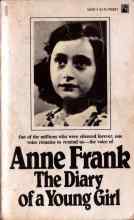
It is a book of the writings from the diary kept by Anne Frank while she was in hiding for two years with her family during the Nazi occupation of the Netherlands. The family was apprehended in 1944, and Anne Frank died of typhus in the Bergen-Belsen concentration camp in 1945. It is an example of how important the written word is to change minds. This book is based on a real story, told by its protagonist and it put voice to million of people and youngsters who went through the horror itself.
- The Alchemist by Paulo Coelho (1988)
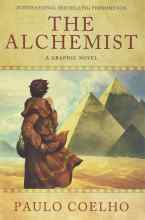
New literature has also great writers behind. After hundred of years of learning and literacy arquetypes, we have reached new standards. Paulo Coelho’s The Alchemist is a new tale, in our new world, putting together all the storytelling knowledge and the result is a master piece. It is an An allegorical novel, The Alchemist follows a young Andalusian shepherd in his journey to Egypt, after having a recurring dream of finding treasure there.
- Iliad by Homer (6th century BC)
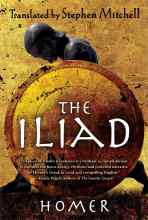
There is always a beginning, and most of the western civilisation inventions, thoughts, culture… can be found in the Ancient Greek world, even, of course, the art of storytelling. Homer is considered one of the fathers of story schematics. In his books there are always love stories, heroes, final twists, suspense, everything that a a good story must have. In this case, Iliad tells of the battles and events during the weeks of a quarrel between King Agamemnon and the warrior Achilles, and it even comes with a Second part, the Odyssey.

Hernaldo Turrillo is a writer and author specialised in innovation, AI, DLT, SMEs, trading, investing and new trends in technology and business. He has been working for ztudium group since 2017. He is the editor of openbusinesscouncil.org, tradersdna.com, hedgethink.com, and writes regularly for intelligenthq.com, socialmediacouncil.eu. Hernaldo was born in Spain and finally settled in London, United Kingdom, after a few years of personal growth. Hernaldo finished his Journalism bachelor degree in the University of Seville, Spain, and began working as reporter in the newspaper, Europa Sur, writing about Politics and Society. He also worked as community manager and marketing advisor in Los Barrios, Spain. Innovation, technology, politics and economy are his main interests, with special focus on new trends and ethical projects. He enjoys finding himself getting lost in words, explaining what he understands from the world and helping others. Besides a journalist, he is also a thinker and proactive in digital transformation strategies. Knowledge and ideas have no limits.










